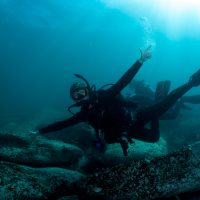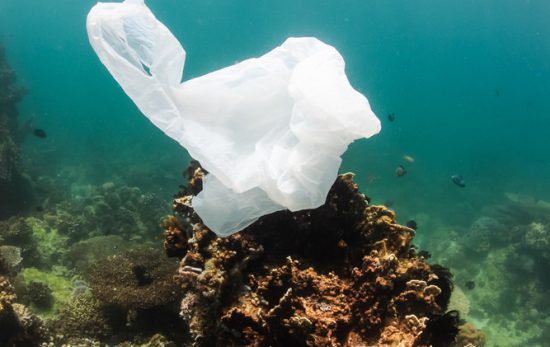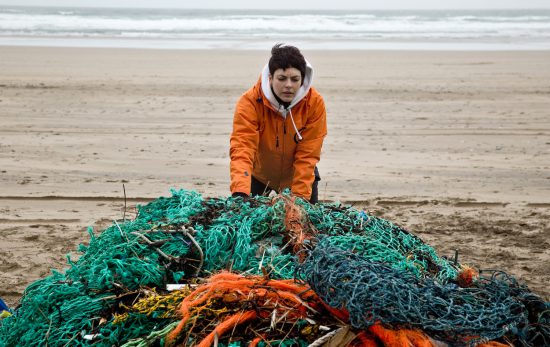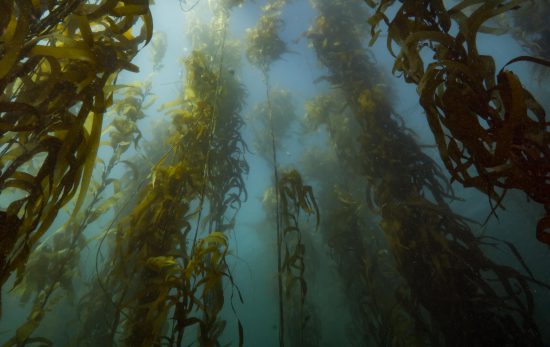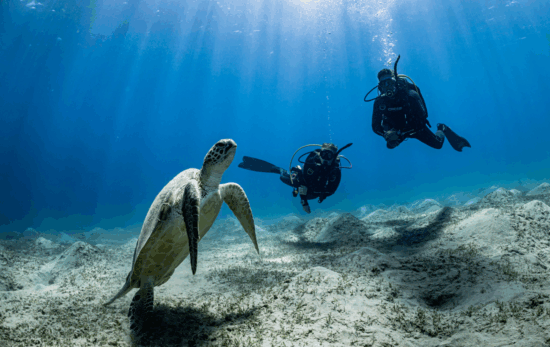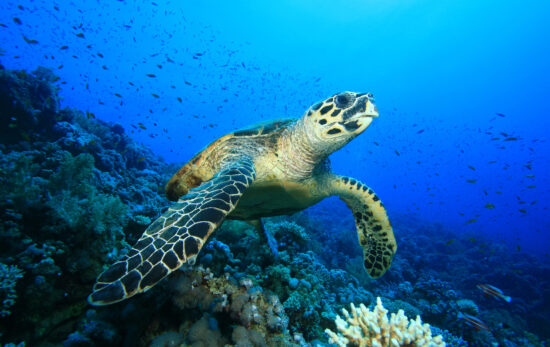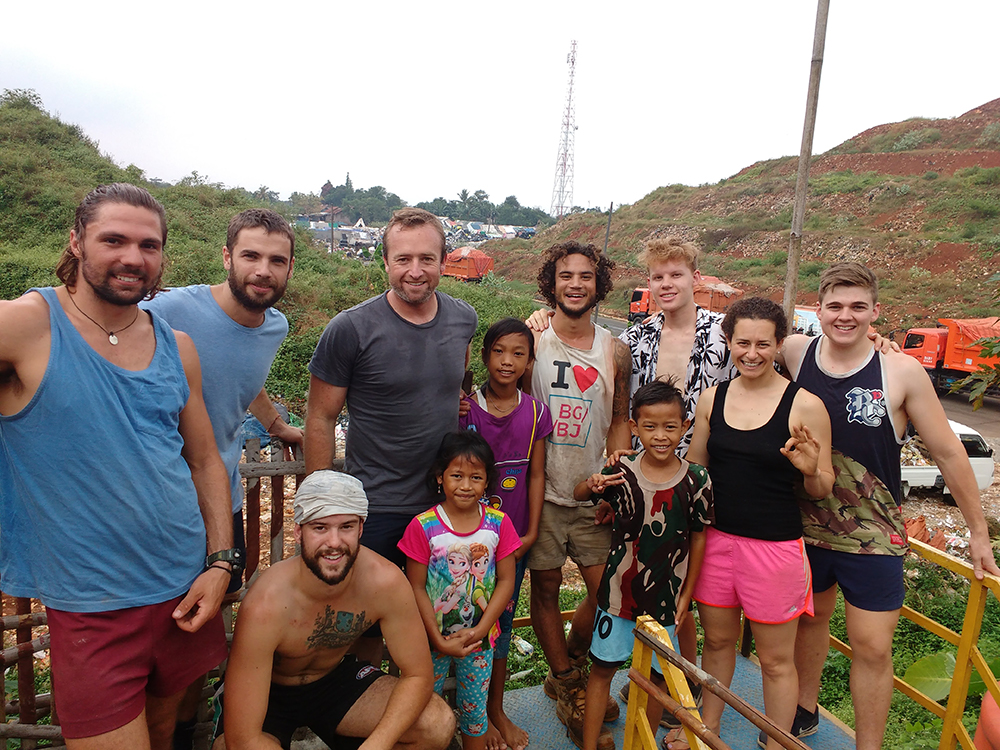 Photo by Resa Janssen
Photo by Resa Janssen
Like many divers, the team from The Dive Shack, feel a responsibility to protect our ocean planet. So when they saw the chance to combine an upcoming dive trip with conservation activities they jumped at the chance.
Earlier in the year, eleven divers travelled with The Dive Shack team to Amed, in Bali for a freediving training camp. They spent their time in workshops, completing line and static breath hold training and working through the PADI Freediver and Advanced Freediver courses. When the training portion of their trip was finished, they travelled to Jakarta to visit Bantar Gebang, the biggest landfill in South East Asia, and volunteer with BGBJ.
We spoke with Rosie from The Dive Shack to hear a bit more about the trip, her passion for conservation, and what every diver can do to make a difference.
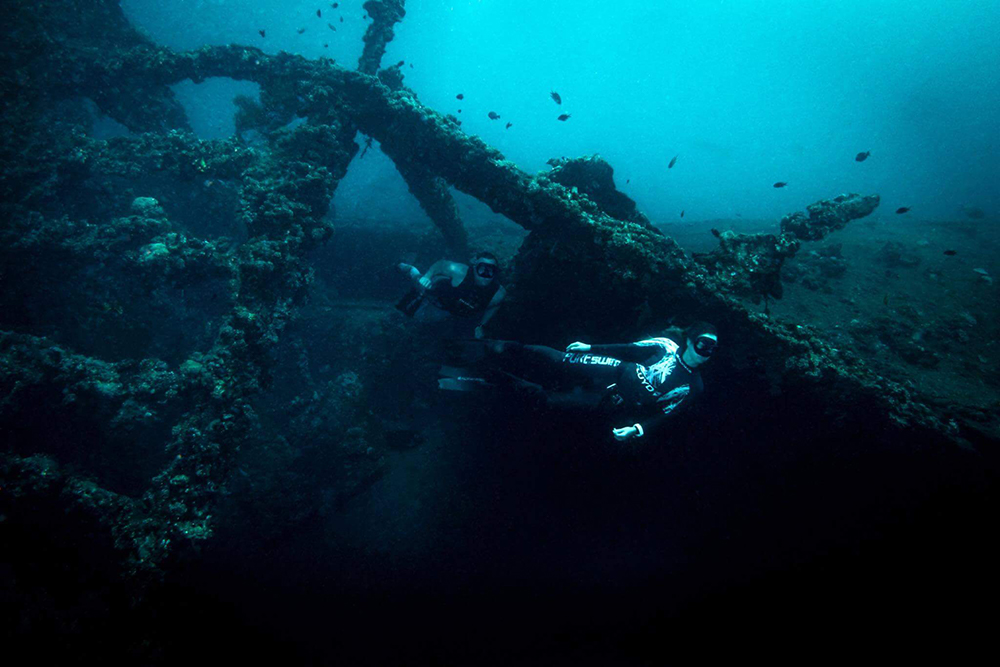 Photo by Liam Hurcombe
Photo by Liam Hurcombe
This trip was first and foremost a freediving training camp, why did you decide to visit Jakarta and assist BGBJ as part of the trip?
We decided to volunteer with BGBJ for a couple of reasons. As divers, we’re acutely aware of the effect of debris in our ocean and the life that it supports. We also believe it’s really important to give back to communities and leave an impact when we travel – we want to contribute in a positive way beyond contributing tourist dollars. The reason we chose BGBJ was because one of our group members has been extensively involved in the project and has been telling us about it for over a year.
Why is conservation important to you and the team at The Dive Shack?
Diving is intrinsically linked to a healthy natural environment. Divers see firsthand the effects of marine debris, over-fishing and other areas of impact on our oceans – so naturally, most divers want to make the ocean a better place. Many businesses rely on the natural environment, and the promotion of a healthy environment should be a priority for any business plan – this is even more true for dive shops.
Whenever we run trips with The Dive Shack, we like to include a positive social or environmental impact and we’re seeing a growing interest in this.
A lot of great dive destinations are found in tropical areas that have harsh conditions, including regular storms. So being able to alleviate some of the pressure that this puts on the community and support these communities is one way we can have a positive impact.
What was the goal for you while volunteering with BGBJ?
BGBJ is a project which closely links the social and environmental impacts our waste has on the planet. Our goals for taking part were to not only benefit the project in any way we could through volunteering, but give our customers the experience of seeing firsthand the effects we are having on our planet. We wanted them to bring home a greater understanding of the human impact on the world and to bring this knowledge and experience back to their local communities to reduce waste and promote positive relationships with the environment.
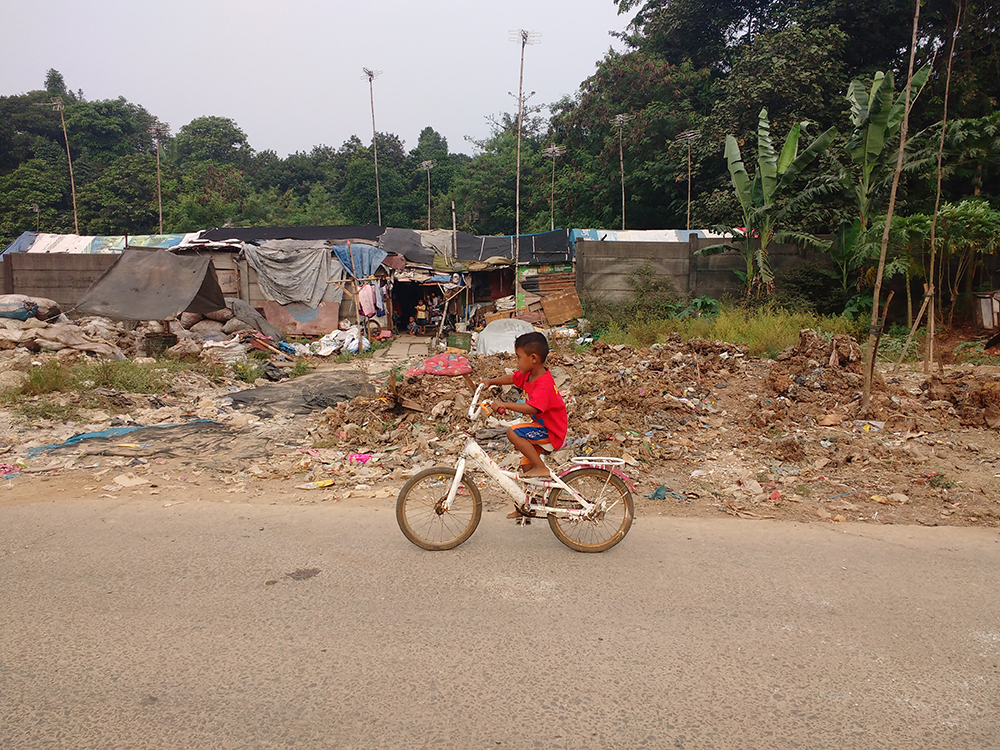 Photo by Rosie Sheba
Photo by Rosie Sheba
Tell us about the day-to-day of the project.
While in Jakarta we interacted with the kids who use BGBJ as a drop in centre. We also helped build the facility there as they’re setting up a hostel and up-skilling centre that will be used as a cultural exchange and education facility. Our days would start around 7am and we would continue to build the centre each day. We also had a few tours of the landfill facility which was eye-opening.
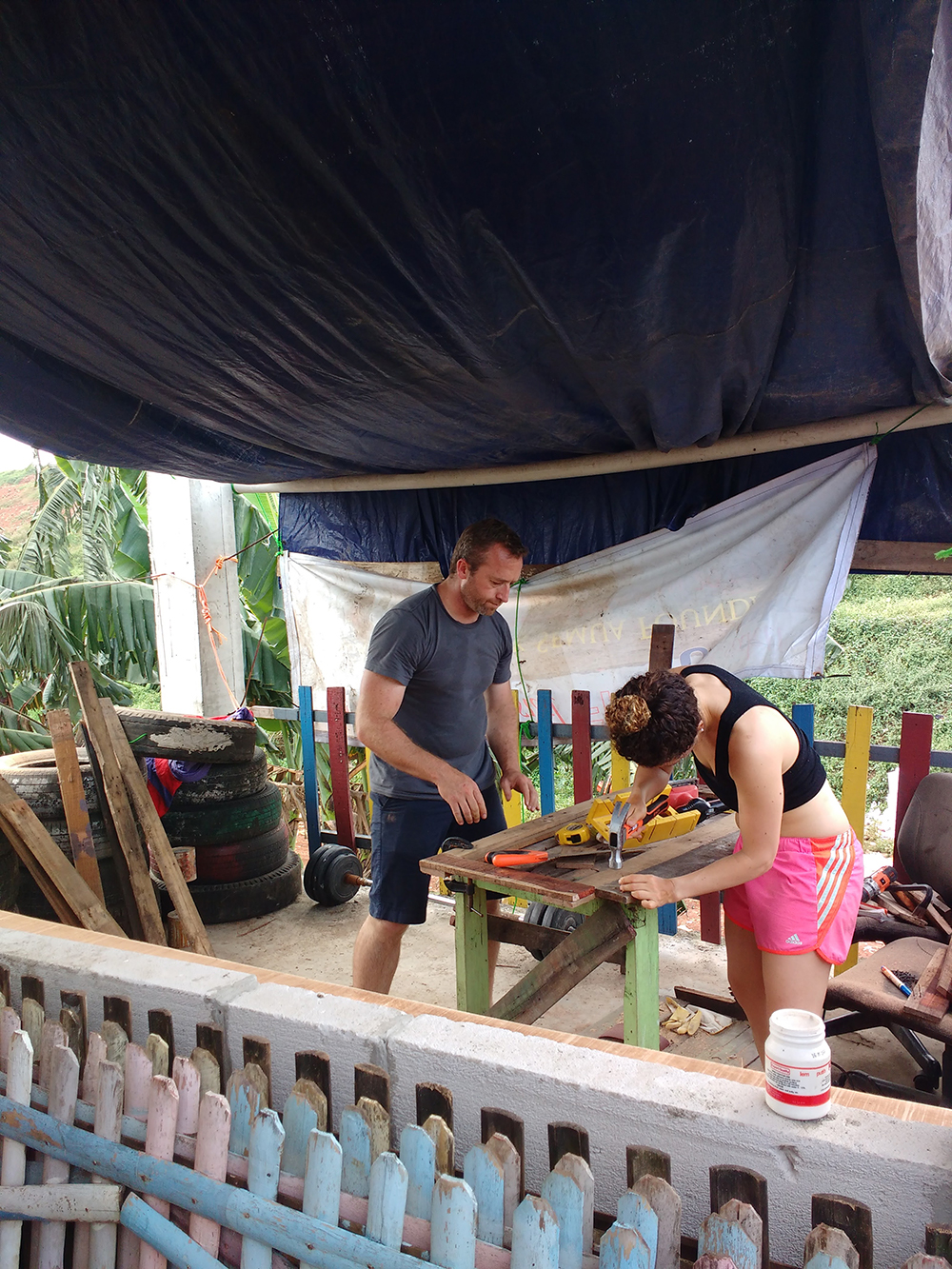 Photo by Liam Hurcombe
Photo by Liam Hurcombe
It’s such a different way of life than any of us were used to. Over 3,000 families comb the landfill for items that can be sold each day. We saw kids climbing into garbage trucks to pick out items before they’re dumped. There’s no health care to speak of so people suffered complications from pregnancies and infections, and the infant mortality rate is higher than other parts of the world.
More than anything, I was amazed by the incredible resilience of the people living there; in particular, one young woman who wants to be a paediatrician one day and start a health care centre. She is currently completing year 12 and we’re looking at ways to help her continue her education.
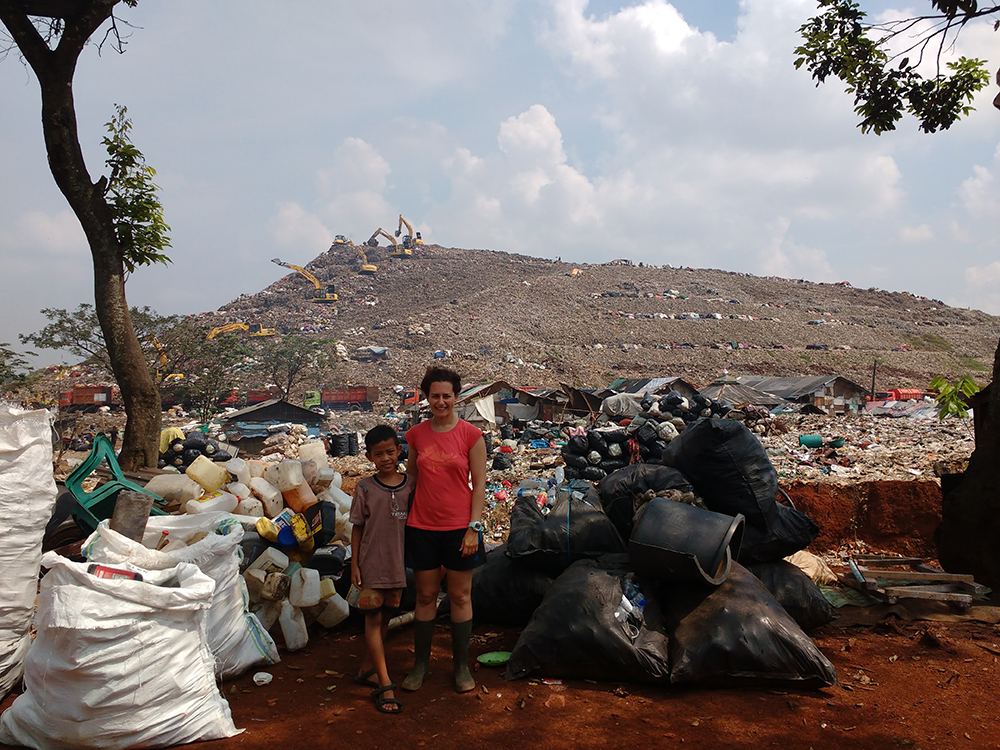 Photo by Liam Hurcombe
Photo by Liam Hurcombe
If there’s one conservation message you want everyone to hear, what would it be?
Real change starts with a change in mindset. We’ve moved beyond the point where sustainability is enough. Our current world needs regeneration rather than sustainability. The projects we do now need to take a regenerative approach – leaving the places we visit, and ultimately the world, in a better state than we found it. It’s not about continuing current practice any more – it’s about improving things, increasing efficiency and reducing negative impacts. It’s about giving back.
What’s next for The Dive Shack? Do you have any more trips coming up?
Absolutely! In 2018 we have trips planned to Raja Ampat, Solomon Islands, Fiji, Gallipoli, Bali and Tonga! There’s never a dull moment when you can combine a love of diving with giving back to communities.
Want to know how you can help? Read more about PADI’s Four Pillars of Change and how divers can give back.
